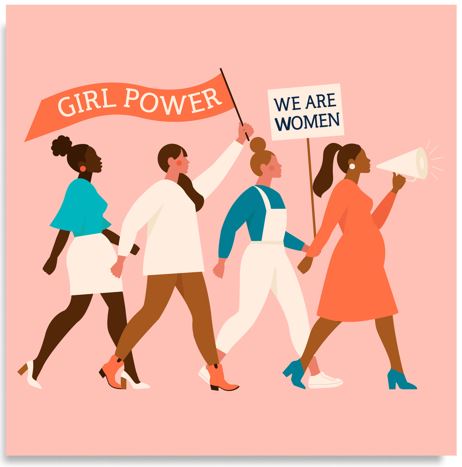By Amalie Comiskey, YWA Ambassador at the University of Nebraska, Omaha
As college students, we are often asked to write about our opinions or life experiences. Here is
such a case, where I was asked to write about normalities in society. We had a lot of leeway in picking our subject matter. However, my professor pushed us to write about ways that we had been “victimized” by our society’s “norms” or how our race, gender, or sexuality impacted how we were treated. In an effort to not be pushed into writing about my “victimization,” I instead chose to write about the toxicity of modern feminism and how it has become the “norm” of our culture, as well as the damage that it has caused on women in our nation. Dear reader, I present to you the toxicity of modern feminism in the concluding segments of my essay “Adventures in Normativity.”
From middle school and beyond, I remember there was always this emphasis in the media on women’s equality, that women can do everything a man can do and even a little better. I grew up with this idea that I could be anything I wanted, do whatever I wanted, and if I could not achieve it, then it was because a man was holding me back. I grew up with t-shirts in the girls’ clothing section saying things like “Girl Power,” “Girls are Stronger than Boys,” and all sorts of blatant mantras that they promoted to little girls in the 2012 era. This innately pits men and women against each other. No longer did the Disney princesses have a man coming to their rescue or friends to help them because they could do it themselves. The message was that, as women, they did not need any help. So many women in our society are told that they do not need help, that they can be everything they want to be, all the while never accepting help from others because we “fought for our rights to independence.”
It was a privilege as a woman to be independent, and we should glory in that. As women, we have been “empowered” by this modern feminism that we can do everything we want to do, but what they do not warn these young girls of is the mental toll that it takes on you. As humans, we were built for community. To embrace this independent mindset goes against Proverbs 17:17 and the design God has for humanity.
Ultimately, the feminism of our society has a vision of an ideal life for women that has become all too normal, a version that only defines our self-centeredness, isolation, and indulgence. The success that we are sold from the womb is to make good money, get the car, the house. You do not need anyone; do not get tied down. It angers and saddens me to see how many women are sold this lie of independence; so many little girls sold this dream of CEO careers, high heels, six-figure incomes, independence, and solitude. It breaks my heart to see this lie told to so many women, because what is the outcome of that lifestyle: one that revolves around only our wants and desires and the “I don’t need anyone” attitude, and one that indulges in a life of work, money, and materialism. I know this lifestyle because I was sold it, too. I grew up wanting that life and that “independence.” It was not until I looked at myself and how unhappy I was that I started to question this idea. What good does complete independence bring us when we are made for community? What good do money and materialism bring us when we have no one with whom to share anything? This is not the normal that I want, and for that, I am ashamed. I have said that I have no desire to become “that” independent woman; I have no desire to live a life on my own.
We see in Scripture that believers are called to carry each other’s burdens, confess sins to one another, spur one another on to love and good deeds, and pray for each other (Galatians 6:2, Hebrews 10:24, James 5:16). In today’s culture, for a woman to call out the toxicity of modern feminism is to go against the grain. For having her own opinions and differing beliefs, she becomes an outcast. However, as Christians, we are instructed “do not conform to the pattern of this world, but be transformed by the renewing of your mind. Then you will be able to test and approve what God’s will is—His good, pleasing and perfect will” (Romans 12:2), and that is the mindset I’ve chosen to embrace.






